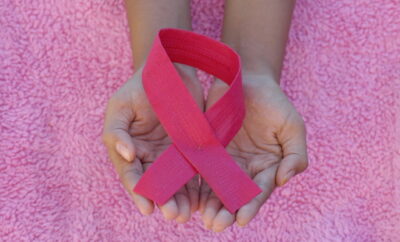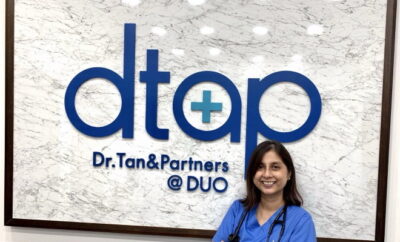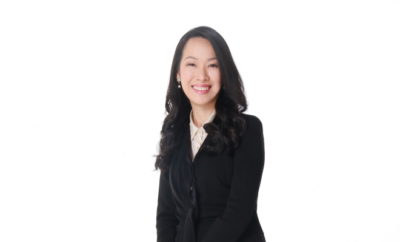
Health x Wellness
Raising Breast Cancer Awareness: Early detection saves lives.
Singapore is one of the few Asian countries with a national breast screening programme. Yet, the participation rate is still low. The reasons for the low participation rate are vast. Some feel that it is not necessary to undergo a mammogram screening because they live a healthy lifestyle, have no family history or known genetic mutations and their breasts look and feel normal. Others give reasons such as being busy, feeling embarrassed, fearful of diagnosis, concerned about waking up cancer cells or getting breast cancer from doing a mammogram screening.
There are 10 facts that I would like to highlight during this breast cancer awareness month:
- Breast cancer can affect anyone—young, old, male, female, those with a healthy lifestyle, those with or without risk factors. It is more common in females, the older age group, those with a known genetic mutation or a strong family history of breast cancer. The best way to recognise any changes early is to be familiar with your own breast baseline.
- It is important to go for screening as early breast cancer often has no symptoms. Mammogram screening is the most effective screening tool available—and is the standard technology used globally—to detect early breast cancer before any symptoms arise. Usually 2 X-ray images of each breast are taken after the breast is compressed—yes, it can be uncomfortable but it only lasts a few seconds. Good compression is vital as it helps to spread out the breast tissue so that abnormalities can be clearly seen. Doing it annually does not increase your breast cancer risk. Mammogram screenings can be supplemented with an ultrasound or MRI scan.
- If you have symptoms, try to stay calm and see a doctor. Breast pain, lump or nipple discharge can be due to benign (non-cancerous) breast conditions. If you are pregnant and suspected of breast cancer, ‘diagnostic’ mammogram can be performed using an abdominal shield to protect the foetus.
- When a suspicious abnormality is detected, a biopsy is performed to obtain the tissue for confirmation of diagnosis.
- Going for a mammogram or performing breast biopsy does not cause your cancer to spread.
- Breast cancer is highly treatable and patients often live a long life (we are talking about 20-30 years!) with adequate and appropriate treatment. If left untreated, it can grow, spread and cause a person to suffer physically. Even in cases where breast cancer has spread to other organs, unlike that of pancreatic or liver cancer where survival is measured by months or a few years at most, it is not uncommon for patients with metastatic breast cancer to live beyond 5-10 years if they receive treatment to control the cancer.
- Breast cancer treatment often involves a combination of surgery and/or radiation therapy, chemotherapy, hormone therapy, and targeted therapy. However, not only will the doctor advise treatment options according to the type of tumour one has, he/she will also consider the patient’s overall health and preferences.
- A new treatment modality called cryoablation is being studied in clinical trials. It involves freezing away the tumour while it is still in the breast without the need for an operation. We eagerly await the results of this study.
- Newer drugs have emerged that allow for treatment with lesser side effects or complications.
- If a young person develops cancer, she can still hope for a future family once the disease is under control by undergoing fertility preservation. The decision is an extremely personal one. If you have breast cancer in pregnancy, you may still receive treatment while carrying the baby to term.
- Reconstruction of the breasts after breast cancer surgery is safe and does not increase the risk of the cancer returning. For those who choose reconstruction, depending on one’s situation, it can be done in the same sitting as the cancer surgery or after the completion of cancer treatment. Lipofilling (injecting one’s own fat that is removed during liposuction) has also been found to be safe.
- Although hormone influences and genetics are 2 unmodifiable risk factors for breast cancer development, adopting healthy lifestyle choices by exercising regularly, eating a well-balanced diet, limiting or avoiding alcohol consumption altogether, and maintaining a healthy weight are things we can be in charge of to lower the risk of getting breast cancer and preventing it from returning.
Early detection & diagnosis = Early cancer treatment = Lower chance of dying from breast cancer.
By Dr Jendana Chanyaputhipong, Breast Surgeon, PanAsia Surgery Group









